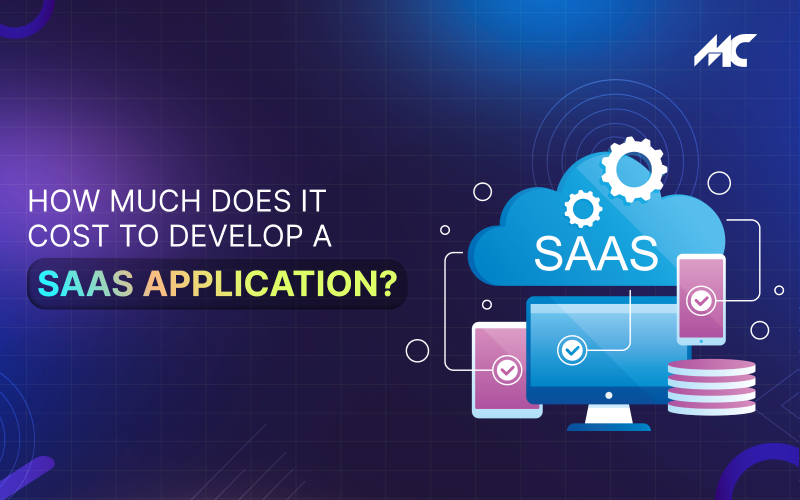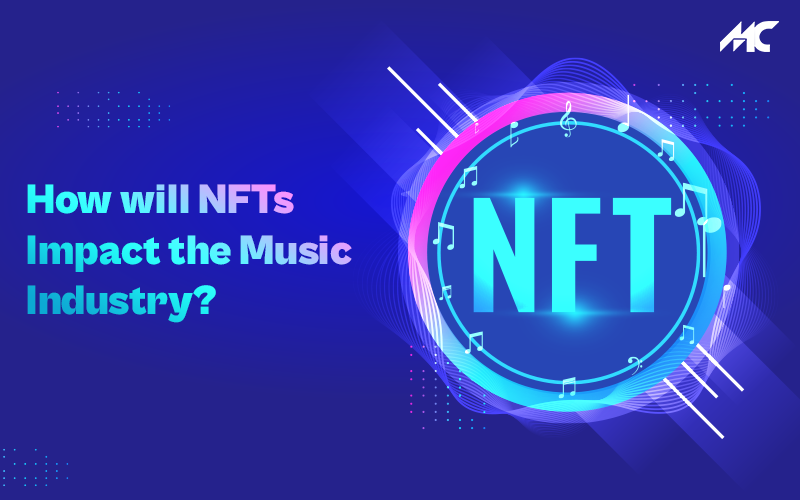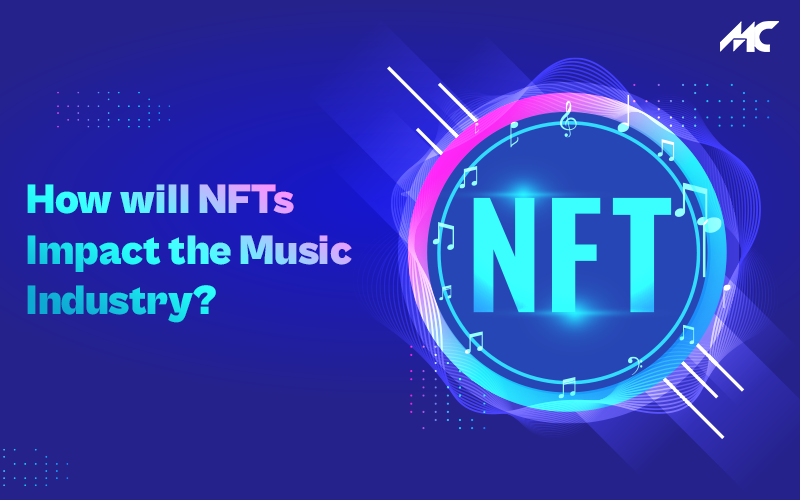The NFT digital technology saw an astonishing rise in popularity in 2021. From pictures of Apes selling for thousands of dollars to selling a collage of 5000 pictures, NFT has become a prominent industry for digital trading assets. In fact, NFT trading had touched the mark of $44.2 billion in 2021. This massive growth might touch a market capitalization of $80 billion by 2025.
NFT in the music industry can also have significant benefits and use cases for artists, music companies, distributors, and music lovers. NFTs are becoming more and more popular among millennials and GenZ. It could be the most convenient way for them to connect with their favorite artists. Moreover, the amalgamation of NFTs and the Metaverse could bring the most drastic changes in the music industry. In this blog, we are going to talk about the impact of NFT on the Music industry and NFT marketplace development. Before we talk about the impact on the music industry, we should learn about NFT technology.
What is an NFT?
An NFT is a digital or cryptographic asset present on a Blockchain network. These tokens cannot be replicated since they have unique identification codes and metadata to separate them from other NFTs. Moreover, we can even use NFTs for representing real-world items like real estate or artwork.
However, unlike cryptocurrencies, we cannot replicate or divide an NFT on the Blockchain. We can just transfer the ownership of an NFT to another person. Encryption codes and digital signatures play a very important role in ensuring protection against theft, duplication, and hacking of NFTs. Thus, NFTs can have an ideal use case in protecting the copyright of digital content.
Characteristics of NFT

Each NFT on a marketplace is unique from the others. Therefore, it can support music artists and music companies to efficiently distribute their digital content over the web. For this reason, NFT in the media and entertainment industry can be great implementers of NFTs. These are some characteristics of NFTs which will further prove their suitability of NFTs in the music industry;
-
They are Indivisible
It is not possible to divide an NFT into smaller pieces. Therefore, it makes it even harder to copy music present in the form of NFTs.
- Ownership is Certain
There can’t be multiple ownership of a single NFT. We can only transfer or verify the ownership. Thus, it could become a great method for reducing piracy.
-
Non-Interoperability
Every NFT present on a Blockchain will have a different value. Therefore, we cannot use NFTs for trading like BTC, Ether, and other cryptocurrencies.
-
Amazing Trading Possibilities
It is true that we cannot exchange NFTs for other NFTs. However, trading of NFTs is possible through effective NFT marketplace development. Thus, there could be limitless trading possibilities for content creators, investors, and end users.
-
Amazing Liquidity
Due to the uniqueness and unlimited trading possibilities of NFTs, it provides amazing liquidity to digital assets. For this reason, many investors have shown a massive interest in investing in NFTs.
-
Superior Customization and Programmability
Developing an NFT requires the assistance of an NFT Marketplace Development company. Therefore, content creators can take the full liberty to show their creativity by customizing their NFTs with true craftsmanship and innovation.
The Problems with the Music Industry
The global music industry is a gargantuan billion-dollar industry with thousands of artists, engineers, and other professionals. In fact, by the end of 2020, this industry had already generated a massive revenue of $21.6 billion. Despite this humongous growth and market, there are certain issues in the music industry.
Firstly, it becomes really hard for musicians to sustain themselves in the industry and continuously make money through their content. Above all, some music companies and distributors often exploit artists irrespective of their efforts and talent.
Secondly, legal contracts and record deals turn this into a systematic process of exploitation. This makes the artists stick to particular companies and restrict them from starting independently. Moreover, popular artists like Kanye West have often called the record deals “modern-day slavery”.
Lastly, the artists only receive a minimum share for the work the companies produce and people actually listen to. Actually, this is a result of the long chain of participants involved in the production of music in this industry.
There’s a huge chain of revenue split between the music artists, managers, record companies, lawyers, agents, distributors, and other stakeholders. Moreover, the record companies actually have ownership over the content or the original recording of the song. Therefore, the actual music artist has no control over where and when it is playing. Ultimately, this creates huge restrictions on the creative freedom of the artist.
Tough Place for Newcomers
This has been a major problem in the music industry since its inception. The record labels have been controlling many music artists according to their own desire. This made it incredibly harder for newcomers to enter the industry and make their name. Moreover, practices like nepotism and favoritism also created a massive hindrance for new talent to enter the industry.
Community-driven platforms like YouTube, TikTok, and Instagram have given a lot of power back to the creators. Nowadays, they can start their content campaigns and host digital content on these platforms. Thus, it is now much easier for music artists to promote and market their music to the public.
Moreover, monetization tools are also available on these platforms to help artists to make a living. However, the problem of intermediaries still exists because big corporations are also controlling these platforms. Thus, we need an innovative solution which will reduce the involvement of the intermediaries in the music production process.
Using NFTs to transform the Music Industry
The COVID-19 era brought a massive challenge to the concerts, sports, and entertainment industries. NFTs gave a new way for fans to connect with their favourite artists, content creators, companies, and teams.
Many creators started to focus on white label NFT marketplace development to indulge more buyers in accessing their content. This movement encouraged many celebrities and NFT enthusiasts to buy digital collectables such as Cool Cats, Crypto Punks, Bored Apes, etc.
NFTs present on various Blockchains such as Ethereum, Binance, Solana, and Smart Chain are verifiable, unique, and valuable. Above all, NFT in media and entertainment industry allow artists to have a new medium to present their work to actual users.
Therefore, they can market their work present on a Blockchain via NFT marketplaces. This would enable them to engage fans and also help them to determine the rates of their creations. Ultimately, content creators will be able to democratize access to music marketplaces.
How are NFTs Creating New Revenue Sources for Music Artists?
Although, you might think that NFTs are just like digital art files. However, we can also combine them with smart contracts to infuse additional terms or benefits with each NFT purchase. Therefore, NFT in music industry can customize the contracts according to their own conditions. Here’s how musicians will be able to gain new revenue opportunities with the implementation of NFTs;
# New Platforms for Musicians to Sell their Music
NFT in music industry would help the artists to have diverse options to sell their music. In fact, instead of rushing to the top music labels, they can just create and distribute music according to their own terms. Therefore, musicians might have more freedom of choice with the help of effective NFT marketplace development.
New artists would gain more opportunities to showcase their talent on a proper platform. By releasing their music on NFT marketplaces, they will be able to develop a closer connection with their fanbase. Providing more freedom to the creators is a top feature of NFT marketplaces. Thus, the music creators will have better control over their productions and how it is being distributed to end users.
# Huge Reduction of Middleman
As we have discussed before, the music industry consists of so many participants to create and distribute a piece of music. NFT in music industry would help the artists to become more independent and reduce the involvement of middlemen. In fact, the chain of managers, record companies, lawyers, agents, distributors, and other stakeholders can also be removed with effective NFT marketplace development. This would help music artists to gain more control in the process of creating and distributing music.
# Decentralized Streaming Platform
The boom of NFTs will also give birth to new decentralized streaming platforms where content creators can start participating without many restrictions. Above all, this could be a brilliant use case of NFT in media and entertainment industry.
Audius is a remarkable example of a decentralized streaming platform that runs on the concept of NFTs. Therefore, NFT in music industry would certainly massive changes and the way how artists adopt technological innovations.
The Drastic Change in Distribution Strategies
There are many stakeholders present in the music distribution process, and each one is dependent on the other. Therefore, NFT in music industry can be a significant game changer for music artists. Above all, it could provide better ownership and utilities for them to explore. Here’s how NFT would bring change in music distribution strategies;
– Events, Collectibles, and Merchs
In order to build an engaging community of fans, music artists have to organize events and create merchandise and collectables continuously. Using digital versions of these assets could be a great idea to engage a larger community for a longer period of time. Therefore, the artists would be able to connect with their new potential fans that are purchasing their NFT tokens.
– Digital Ownership of Music
The effective combination of NFTs and Smart Contracts will ensure proper ownership of music and provide the appropriate amount of royalties as well. This would be the first use case where the fans will be directly supporting the artist to unlock their full potential. These digital assets can be either sold, traded, or rented for profit.
Therefore, the concept of ownership will drastically improve with NFT in music industry. This would be more important since the mainstream music industry now focuses on streaming services over digital downloads. Moreover, it would also resolve copyright issues and legal disputes, which often led to court cases.
– Fan-to-Access Community
NFT in music industry can help artists create a fan-to-artist ‘access pass’ that would help the fans directly connect with their favorite artists. Furthermore, this community would provide fans with direct access to exclusive behind the scene footage, a glimpse into the personal life of the artists, and more. Moreover, one-to-one video calls, backstage access, and discounts can also be provided through these innovative NFT solutions.
The Present Scenario of NFT in Music Industry
You might think that linking NFTs with music industry would be a distant future. However, it has already become a reality. 3LAU, an electronic music producer, has already become the first one to release a tokenized music album.
It made a whopping $3.6 million in sales and became the best-selling album with NFT technology. Moreover, popular Columbian artist Shakira is also collaborating with BossLogic to release her own NFt for her fans.
Plenty of other artists have been using social media platforms to show interest in NFT in music industry. Above all, this clearly shows the potential of NFTs in this industry. However, we also understand that NFTs will be used as a personal branding strategy among music artists. The nature of their NFT will depend on the Blockchain they invest in.
Potential Problems with NFTs in Music Industry
Not everything is green with the use of NFT in music industry. These could be some potential drawbacks or problems with NFTs; 

a. Huge Environmental Impact
It requires an enormous amount of energy to process and mint NFTs into a Blockchain network. However, this is a major issue with cryptocurrencies in general. In fact, popular Blockchain networks Bitcoin and Ethereum consume the same amount of energy as the entire region of Chile.
For this reason, the Ethereum Foundation has already switched from the energy-intensive PoW to the PoS consensus method to reduce the environmental impact. This would drastically reduce the energy consumption necessary for minting NFTs. However, not all Blockchain networks follow the energy-efficient Proof-of-Stake mechanism. Thus, more efforts are required to make other Blockchains energy efficient.
b. Copyright Issues
So far, we might have discussed a lot of creative freedom and giving ownership to the artists. Despite having a huge potential copyright innovation, still, there’s a huge problem in terms of the rate of adoption.
People are still not clear about the limitations on who owns the intellectual assets of a song after its publication as an NFT. Moreover, record companies might continue to dominate the industry by ensuring the continuation of monetization of artists to the maximum extent. Therefore, there could be a lot of legal conflicts in the future while implementing NFTs in music industry. Ultimately, this might slow down the advancements of NFTs.
The quicker adoption of NFT can only be ensured when it will define clear limitations of copyrights and help artists to adopt this technology. Moreover, the original artist will get compensation after their song has been playing. However, the adoption process might take some time to implement due to the limitations of Blockchain technology.
c. NFTs Could be Expensive
Again this could be a huge hindrance for the newcomers in the industry. Since every NFT is unique and has built-in scarcity, the minting process is also quite expensive. Plus, the sale also depends on the best or highest offer. Thus, the sale might exclude a huge population of music fans who might lack the financial means to purchase an NFT. Even with effective NFT Marketplace Development, it would be quite hard to regulate the price of music NFTs.
Therefore, the distributors must take strict measures to ensure that the artist is able to create real connections with fans and that no one is cut off. However, it would be very difficult to maintain the price of this high-end content. Even though NFTs are known for building a community, they might also neglect the existing social inequalities in society.
NFT Royalties
We all know that Royalties are the backbone of the entertainment and music industry. It is a constant source of income for music artists, depending on their success. Using NFTs will impact the music artists by;
- Merging the royalties into NFT smart contracts
- Taking full advantage of royalty account software like Curve to generate reports on royalties.
What is a Music Royalty?
A royalty is a legal contract that provides monetary compensation to the individual artist in return for continuous use of their music content. These Royalty payments can be made when their songs are:
- Played on the television or radio
- Used as a soundtrack in movies
- Played at restaurants, bars, or events
- Listened through streaming platforms like Spotify, Apple Music, etc.
How do NFT Royalties work?
When artists integrate their music into an NFT to be sold in a marketplace, they are given a share of the sale price. Then, the royalties are paid continuously and automatically with the help of Smart Contracts.
However, there are certain differences between NFT royalties and traditional forms of royalties. In NFT royalties, the payments are given to the published based on the secondary sales. These royalties are implemented automatically with the help of a Blockchain-based NFT smart contract.
Whenever a sale is made, the Smart Contract is responsible for verifying that the terms of NFT have been satisfied properly. Therefore, a portion of the money is given to the music artist upon successful sale. Above all, there’s no need for the involvement of any middlemen in transactions.
However, it is very important to learn that not every NFT is meant to generate royalties. It must be stated by the NFT owner while defining its conditions. Once the conditions of the Smart Contract are written in the Blockchain, the entire process will continue with automation. Generating royalties for the creators has been a top feature of NFT marketplaces.
What Will be the Future of NFTs in Music Industry?
The picture might not be very clear about the implementation of NFTs in the music industry. However, the constant popularity and growth of Blockchain will have a massive impact on every industry, including the music industry. Moreover, many artists and creators have already shown a massive interest in investing in NFT technology. Royalty calculation platforms like Curve are also creating a big difference in the music industry and royalty management.
Therefore, we can anticipate the NFT ecosystem to grow even further with smooth implementation in the music industry. NFT in media and entertainment industry might be a drastic reform on how we consume and distribute media.
NFT Marketplace Development with MobileCoderz
If you are also planning to develop an NFT or NFT marketplace, then you would need extensive technical expertise with Blockchain technology. MobileCoderz, a leading digital transformation company, has years of experience with Blockchain, Smart Contracts, Defi, and NFTs. We have expert Blockchain developers, designers, QA experts, and project managers who can make the development process a breeze. Moreover, we have an extensive portfolio of clients from various industries.
-

 Mobilecoderz Awarded as India’s Best iPhone App Development Company by Clutch
Mobilecoderz Awarded as India’s Best iPhone App Development Company by Clutch -

 How Much Does It Cost to Develop a SaaS Application?
How Much Does It Cost to Develop a SaaS Application? -

 Mobilecoderz recognized as the Top App Development Company in Saudi Arabia by GoodFirms
Mobilecoderz recognized as the Top App Development Company in Saudi Arabia by GoodFirms











